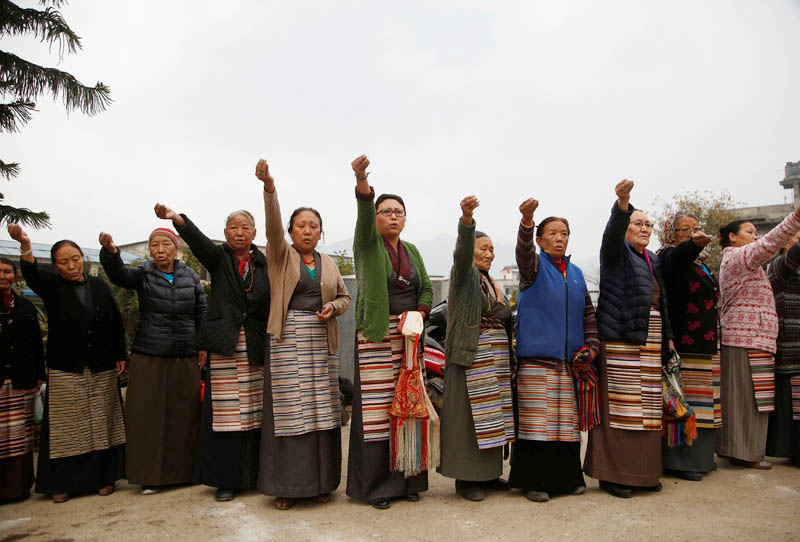China may ‘misuse MLAT against Tibetan refugees’
Kathmandu, October 14
Rights activists and lawyers have cautioned that the newly signed mutual legal assistance treaty that enables signatories to serve subpoenas and collect evidence could be used by China to punish Tibetan refugees in Nepal.
The government is yet to release the full text of the treaty but Spokesperson for the Ministry of Law, Justice and Parliamentary Affairs Dhana Raj Gyawali said the newly signed treaty covered basically two issues: serving of subpoenas and gathering of evidence. “But there is no provision for executing judgment in this treaty,” he said.
Another source at the ministry of MoLJPA said the newly signed MLAT was based on Nepal’s Mutual Legal Assistance Act-2014 and almost all the provisions incorporated in that Act, except judgment execution, were part of the MLAA.
There is a clause in the MLAT that states there should be separate treaty for execution of judgment.
Indra Prasad Aryal, chairperson of Human Rights Organisation of Nepal, told THT that signing of mutual legal assistance with Nepal was a prelude to the signing of an extradition treaty with China. “In fact, we do not need an extradition treaty with China because we do not have open border with China. If we need to sign an extradition treaty with any country urgently, it is India for protecting our own interests because people commit crime here and flee to India,” he said.
He said China had been trying to sign extradition treaty with Nepal for long basically to punish political and religious dissidents. “China wants to take Chinese political and religious dissidents from Nepal and punish them in their own country. Our government, which has entered a gentleman’s agreement with UNHCR to provide safe passage to Tibetan refugees, needs to tread carefully on the extradition treaty issue,” he said.
Criminal lawyer Gopal Krishna Ghimire said China could misuse MLAT to unfairly target Tibetan refugees in Nepal. “China can tell our government tomorrow that a particular Tibetan refugee has committed a crime in China and s/he should be kept under surveillance. In that case, the Tibetan refugee could be unfairly targeted,” he argued.
According to Senior Advocate Satish Krishna Kharel, mutual legal assistance treaties are signed with the objective of performing basically four tasks: to issue subpoenas, collect evidence, execute judgment and to facilitate recovery.
He said MLAT could be misused by signatory parties. “Often countries slap criminal charges on political leaders and cadres to punish them and, therefore, MLAT runs the risk of being misused,” he added.
Mutual legal assistance criteria
As per Section 5 of Nepal’s Mutual Legal Assistance Act, mutual legal assistance between Nepal and a foreign state may be provided in following matters related to judicial proceedings:
(a) taking, collecting or receiving document or evidence
(b) providing information and evidence by inspecting any relevant thing or place
(c) providing originals or certified copies of relevant documents including banking, financial or business records
(d) executing searches and seizures of objects, locating or identifying persons
(e) facilitating the appearance of persons who can assist in a matter of criminal nature
(f) serving summons
(g) freezing or confiscating movable or immovable property
(h) enforcing judgments






